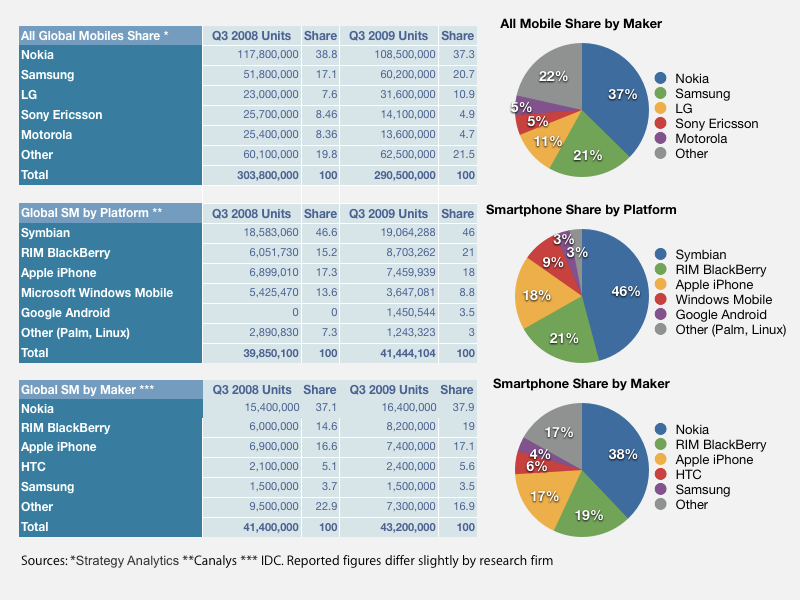Samsung introduces Bada mobile platform
- Transfer
Samsung, the world's second-largest handset manufacturer, is introducing a new smartphone platform that it hopes to use to strengthen its position in the mobile device market.
Samsung Bada, which means “ocean” in Korean, will be built on a linux platform with an open SDK. The first phones on this platform will appear at the beginning of next year. Unlike Android, Samsung develops its mobile platform only for its devices, such as Apple or Palm.
A year ago, the company introduced Windows Mobile Omnia as a leading development, but this year it released Omnia HD using the Symbian platform, Sony Ericsson did the same, launching Windows Mobile Xperia X1 and then Idou based on Symbian.
Like Sony Ericsson, Samsung announced plans to use Android in the future instead of Symbian and gradually increase the share of its devices using Android to 30%. Now Samsung says that it will gradually completely abandon devices on Symbian, greatly reduce the release of gadgets on Windows Mobile and make Bada its main operating system.
In the mobile phone market, Samsung is gradually approaching Nokia's leader with about 20% of the market. On smartphones, however, performance is not so good. Samsung has only recently entered the top five sellers of smartphones and is currently very far behind Nokia, RIM, Apple, and HTC, having sales of only $ 1.4 million per quarter, which roughly corresponds to its sales last year.

Android supporters expected Samsung to warmly accept Google’s platform as the free alternative to Windows Mobile that Samsung is currently using. Instead, Samsung follows Nokia, which is also developing its Maemo, independently of Google.
Samsung’s interest in creating and promoting its own software filling instead of using Android is to create a smartphone that is different from others and try to gain a foothold in the ever-changing market for mobile devices. In addition, this position indicates that Android is unlikely to be able to blow up the smartphone market next year, as most experts had previously said.
Samsung Bada, which means “ocean” in Korean, will be built on a linux platform with an open SDK. The first phones on this platform will appear at the beginning of next year. Unlike Android, Samsung develops its mobile platform only for its devices, such as Apple or Palm.
A year ago, the company introduced Windows Mobile Omnia as a leading development, but this year it released Omnia HD using the Symbian platform, Sony Ericsson did the same, launching Windows Mobile Xperia X1 and then Idou based on Symbian.
Like Sony Ericsson, Samsung announced plans to use Android in the future instead of Symbian and gradually increase the share of its devices using Android to 30%. Now Samsung says that it will gradually completely abandon devices on Symbian, greatly reduce the release of gadgets on Windows Mobile and make Bada its main operating system.
In the mobile phone market, Samsung is gradually approaching Nokia's leader with about 20% of the market. On smartphones, however, performance is not so good. Samsung has only recently entered the top five sellers of smartphones and is currently very far behind Nokia, RIM, Apple, and HTC, having sales of only $ 1.4 million per quarter, which roughly corresponds to its sales last year.

Android supporters expected Samsung to warmly accept Google’s platform as the free alternative to Windows Mobile that Samsung is currently using. Instead, Samsung follows Nokia, which is also developing its Maemo, independently of Google.
Samsung’s interest in creating and promoting its own software filling instead of using Android is to create a smartphone that is different from others and try to gain a foothold in the ever-changing market for mobile devices. In addition, this position indicates that Android is unlikely to be able to blow up the smartphone market next year, as most experts had previously said.
